The Source of Trump’s No-Brainers
The Republican front-runner has a built-in treasure house of incredible ideas on foreign policy, such as his wall on the US-Mexican border “My primary consultant is myself I have a very good brain,” he explains The greatness that pours from that organ is enough to make your head spin.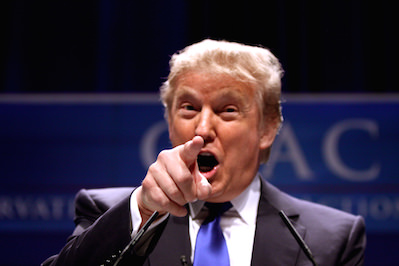 Donald Trump is the smartest man in the world. Just ask him. He'll tell you. Gage Skidmore / Flickr / CC BY-SA 2.0
Donald Trump is the smartest man in the world. Just ask him. He'll tell you. Gage Skidmore / Flickr / CC BY-SA 2.0
A lot of sensible people think the idea of Trump’s Wall is crazy. Maybe that’s because they aren’t blessed with Trump’s Brain.
The brain is an essential part of Donald Trump’s campaign for the Republican presidential nomination. He cited it on “Morning Joe” recently when asked the identity of his foreign policy advisers. “I’m speaking with myself, number one, because I have a very good brain,” he said. “My primary consultant is myself, and I have a good instinct for this stuff.”
If the Trump Brain gives him great guidance on foreign affairs, it should be even better when it comes to building a wall on the 1,954-mile United States-Mexico border. Trump is a famous land developer who has had his hand in many building projects. He has already given his wall project—at least the financing of it— some thought: Once president, he will make Mexico pay. “You force them, because we give them a fortune,” he said. “Mexico makes a fortune because of us. A wall is a tiny little peanut compared to that. I would do something very severe unless they contributed or gave us the money to build the wall.” He added, “I’d build it very nicely. I’m very good at building things.”
Aside from generalities such as this, Trump has been vague on details. As is true of all journalists, I am nowhere nearly as smart as Trump. But within my limitations, I have been researching construction, walls, financing of huge projects and our relations with Mexico. All these matters are involved in construction of Trump’s Wall.
First, the actual construction. On The National Memo website, I found a terrific article titled “An Engineer Explains Why Trump’s Wall Is So Implausible.” It was written by Ali F. Rhuzkan, the pen name, The National Memo explains, “of a professional engineer and unprofessional writer living in New York City.”
As Rhuzkan sees it, the cost and logistics would be huge.
Rhuzkan based his calculations on a 30-foot-tall, 2,000-mile-long wall, stretching the entire border. Providing details that Trump didn’t furnish, Rhuzkan backed Trump’s choice of construction material: precast concrete and 5 billion pounds of steel. “We could melt down four of our Nimitz carriers and probably be a few cruisers short of having enough steel,” Rhuzkan wrote. In addition to the steel, Trump’s Wall would require three times the amount of concrete used in Hoover Dam.
Since his initial comments, Trump has reduced the length of his wall to 1,000 miles, figuring mountains and other natural barriers will take care of the rest of the border. But he has increased the height of his wall. As chronicled by Philip Bump of The Washington Post, the wall, in Trump’s words, has gone up to 45, 50, 55 and 65 feet, depending on how Trump feels about it at the moment.
Trump estimates the cost at $10 billion to $12 billion. But Glenn Kessler, the Post’s fact-checking reporter, consulted a retired construction estimator and economist who told him the amount would be at least $25 billion.
That’s because the cost would include the pay and benefits of the undetermined thousands of workers needed to make the concrete slabs and steel reinforcement and truck them to the remote construction sites on the Mexican border. Food, water, shelter, bathrooms, medical care and transportation for these many workers over the multiple-year construction project would drive the cost up even more. So would maintenance and a network of surveillance cameras with additional Border Patrol cops to monitor them.
So far, Mexico—unsurprisingly—has not gone along. Former Mexican President Vicente Fox told a Univision interviewer that his country is “not going to pay for that fucking wall.” Trump replied, “The wall just got 10 feet taller.”
Suppose Trump won’t take “no” for an answer. Being a man of action, he could decide to invade Mexico and cart the money away, as the Spanish invaders once did with the Aztecs’ gold.
He could find a road map on how to proceed in the National Archives, in the files of the so-called Mexican Punitive Expedition of 1916-1917, about the U.S. Army’s campaign in Mexico after Pancho Villa attacked a town on the U.S. side of the border.
Around the turn of the 20th century, big American corporations controlled the Mexican economy. They feared Mexicans would try to take control of Mexico’s resources. Mexican patriots, including the revolutionary Villa, terrified them. When Villa raided the town of Columbus, N.M., President Woodrow Wilson ordered an invasion. Gen. John J. Pershing led an army of almost 7,000 American troops, a force that grew to 12,000. Even conservative Mexicans who didn’t like Villa fought back against the invaders. The U.S. trucks broke down on the rough roads, and the planes of the First Aero Squadron couldn’t make it over the mountains. With the invasion going nowhere but backward, Pershing and his troops withdrew in January 1917.
This bit of historical trivia is just one more example of ventures like this—such as the invasion of Iraq—not always turning out as expected.
So here’s another idea. Trump is the Master of the Deal. Mexico has its own masters of the deal: the drug cartels. The Trump Wall would cut off much of their access to the lucrative United States market, although they would still have planes and high-speed boats. Why couldn’t Trump give the drug cartels passage through the wall in exchange for financing it? He could give them key cards, too, like the ones he gives the guests in his hotels.
The Trump Wall, of course, is just part of his immigration policy. The Trump Roundup is another major piece. Rounding up the 11 million people who are in the U.S. without documentation would cost much more than the wall. As the United States found in its much more modest attempts to contain Japanese-Americans during World War II, preliminary detention spots (one was the Santa Anita racetrack stables near Los Angeles) were needed until the big prison camps were completed. In the Trump Roundup, buses, trucks and planes would be needed to first take the immigrants to local centers. Then they would be put aboard trains or planes and taken south across the border.
The horror those scenes would inspire is beyond comprehension—assuming Trump would permit them to be covered by the media. So are the foolishness and wastefulness of the Trump Wall. Welcome to Trump World, where all ideas pour unfiltered from that scary organ, the Trump Brain.
Editor’s note: As this column was being prepared for publication, Donald Trump formed a foreign policy team. Click here to see an article about Monday’s development.
Your support is crucial…With an uncertain future and a new administration casting doubt on press freedoms, the danger is clear: The truth is at risk.
Now is the time to give. Your tax-deductible support allows us to dig deeper, delivering fearless investigative reporting and analysis that exposes what’s really happening — without compromise.
Stand with our courageous journalists. Donate today to protect a free press, uphold democracy and unearth untold stories.
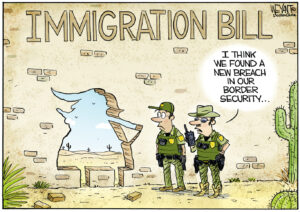
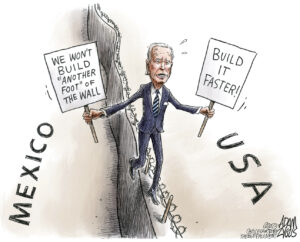
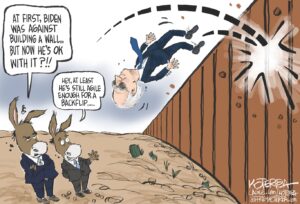
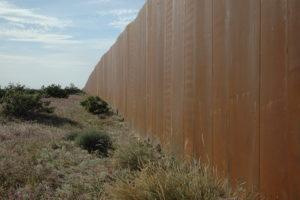
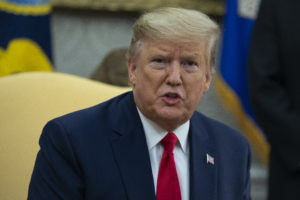
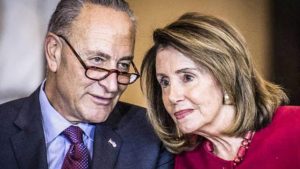
You need to be a supporter to comment.
There are currently no responses to this article.
Be the first to respond.